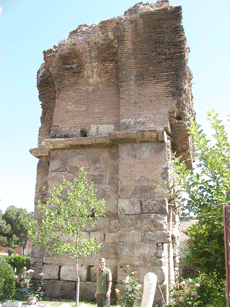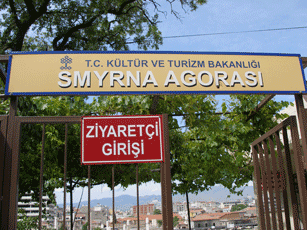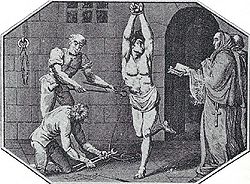Holy Trinity Sunday
Sunday, June 7th, 2009
Sunday Church, Naxos Greece
Today is observed as “Holy Trinity Sunday” by Lutherans and Catholics:
Angel of Joy Lutheran – ELCA. Holy Trinity Sunday. June 7. Holy Trinity Sunday http://www.lufkindailynews.com/featr/content/features/stories/2009/06/06/Church_News.html
7 June – Sunday Reflection with Fr Terry Tastard…In its earliest centuries, as the Church sought to understand God more fully, it came to understand that God is three persons in one. http://www.indcatholicnews.com/news.php?viewStory=14432
There are several points that I would like to make.
The first is that the Catholic Priest Terry Tastard is correct that the early Christian Church did not understand that “God is three persons in one”. The early church was essentially binitarian as that is what ALL the early writings demonstrate prior to the late second century.
The second is that although Rome and Alexandria met on Sunday, this was not the situation with the original faithful Christians as they met on Saturday.
The reason that the Catholics, Orthodox, and Protestants nearly all keep Sunday and teach the Greco-Roman trinity hypothesis of the Godhead is because they were mandated by two Imperial Councils (Nicea and Constantinople) there were enforced by the Roman Emperors Constantine and Theodosius respectfully.
Those Emperors persecuted, even to the point of death, those who would not accept the decision of the Council of Nicea in 325 A.D.
Here are quotes related to both of these Emperors:
Victor Constantinus, Maximus Augustus, to the heretics. “Understand now, by this present statute, ye Novatians, Valentinians, Marcionites, Paulians, ye who are called Cataphrygians, and all ye who devise and support heresies by means of your private assemblies, with what a tissue of falsehood and vanity, with what destructive and venomous errors, your doctrines are inseparably interwoven; so that through you the healthy soul is stricken with disease, and the living becomes the prey of everlasting death… But why should I particularize, when to speak of your criminality as it deserves demands more time and leisure than I can give?…Why not at once strike, as it were, at the root of so great a mischief by a public manifestation of displeasure? (Chapter LXIV.—Constantine’s Edict against the Heretics. This document is from the Christian Classics Ethereal Library at Calvin College).
Edicts of Theodosius against the heretics, A.D. 380-394…Theodosius…decreed that…by the death of the offender; and the same capital punishment was inflicted on the Audians, or Quartodecimans, who should dare to perpetrate the atrocious crime of celebrating on an improper day the festival… (Gibbon E. Decline and Fall of the Roman Empire, Volume III, Chapter XXVII. ca. 1776-1788).
Hence, there is nothing inherently “holy” about Sunday (the Quartodecimans rejected the Roman Sunday Passover) nor the Greco-Roman trinity as they really were highly enforced by Emperors who simply wanted conformity within the Roman Empire.
Also notice the following from one of Theodosius’ other edicts:
…let us believe in the one diety of the father, Son and Holy Spirit, in equal majesty and in a holy Trinity. We authorize the followers of this law to assume the title Catholic Christians; but as for the others, since in out judgment they are foolish madmen, we decree that the shall be branded with the ignominious name of heretics, and shall not presume to give their conventicles the name of churches. They will suffer in the first place the chastisement of divine condemnation an the second the punishment of out authority, in accordance with the will of heaven shall decide to inflict…(Theodosian Code XVI.1.2. Cited in Bettenson H, ed., Documents of the Christian Church, London: Oxford University Press, 1943, p. 31).
So the title “Catholic Christian” is supposed to be for those who believe in the trinity and other Greco-Roman doctrines. Because he is condemning the non-trinitarians (which were the majority of those who professed Christ even into the fourth century), Theodosius apparently should have studied into the question Did the True Church Ever Teach a Trinity?
Some articles of possibly related interest may include:
Persecutions by Church and State This article documents some that have occurred against those associated with the COGs and some prophesied to occur. Will those with the cross be the persecutors or the persecuted–this article has the shocking answer.
Binitarian View: One God, Two Beings Before the Beginning Is binitarianism the correct position? What about unitarianism or trinitarianism?
Did Early Christians Think the Holy Spirit Was A Separate Person in a Trinity? Or did they have a different view?
Did the True Church Ever Teach a Trinity? Most act like this is so, but is it?
Binitarianism: One God, Two Beings Before the Beginning This is a shorter article than the Binitarian View article, but has a little more information on binitarianism.
The Sabbath in the Early Church and Abroad Was the seventh-day (Saturday) Sabbath observed by the apostolic and post-apostolic Church?
Sunday and Christianity Was Sunday observed by the apostolic and true post-apostolic Christians? Who clearly endorsed Sunday?
Hope of Salvation: How the Living Church of God differ from most Protestants How the Living Church of God differs from mainstream/traditional Protestants, is perhaps the question I am asked most by those without a Church of God background.
The Similarities and Dissimilarities between Martin Luther and Herbert W. Armstrong This article clearly shows some of the doctrinal differences between in the two. At this time of doctrinal variety and a tendency by many to accept certain aspects of Protestantism, the article should help clarify why the Living Church of God is NOT Protestant. Do you really know what the Protestant Reformer Martin Luther taught and should you follow his doctrinal example?
Which Is Faithful: The Roman Catholic Church or the Living Church of God? Do you know that both groups shared a lot of the earliest teachings? Do you know which church changed? Do you know which group is most faithful to the teachings of the apostolic church? Which group best represents true Christianity? This documented article answers those questions. Português: Qual é fiel: A igreja católica romana ou a igreja viva do deus? Tambien Español: Cuál es fiel: ¿La iglesia católica romana o La Iglesia del Dios Viviente? Auch: Deutsch: Welches zuverlässig ist: Die Römisch-katholische Kirche oder die lebende Kirche von Gott?
Some Similarities and Differences Between the Orthodox Church and the Living Church of God Both groups claim to be the original church, but both groups have differing ways to claim it. Both groups have some amazing similarities and some major differences. Do you know what they are?
The History of Early Christianity Are you aware that what most people believe is not what truly happened to the true Christian church? Do you know where the early church was based? Do you know what were the doctrines of the early church? Is your faith really based upon the truth or compromise?









